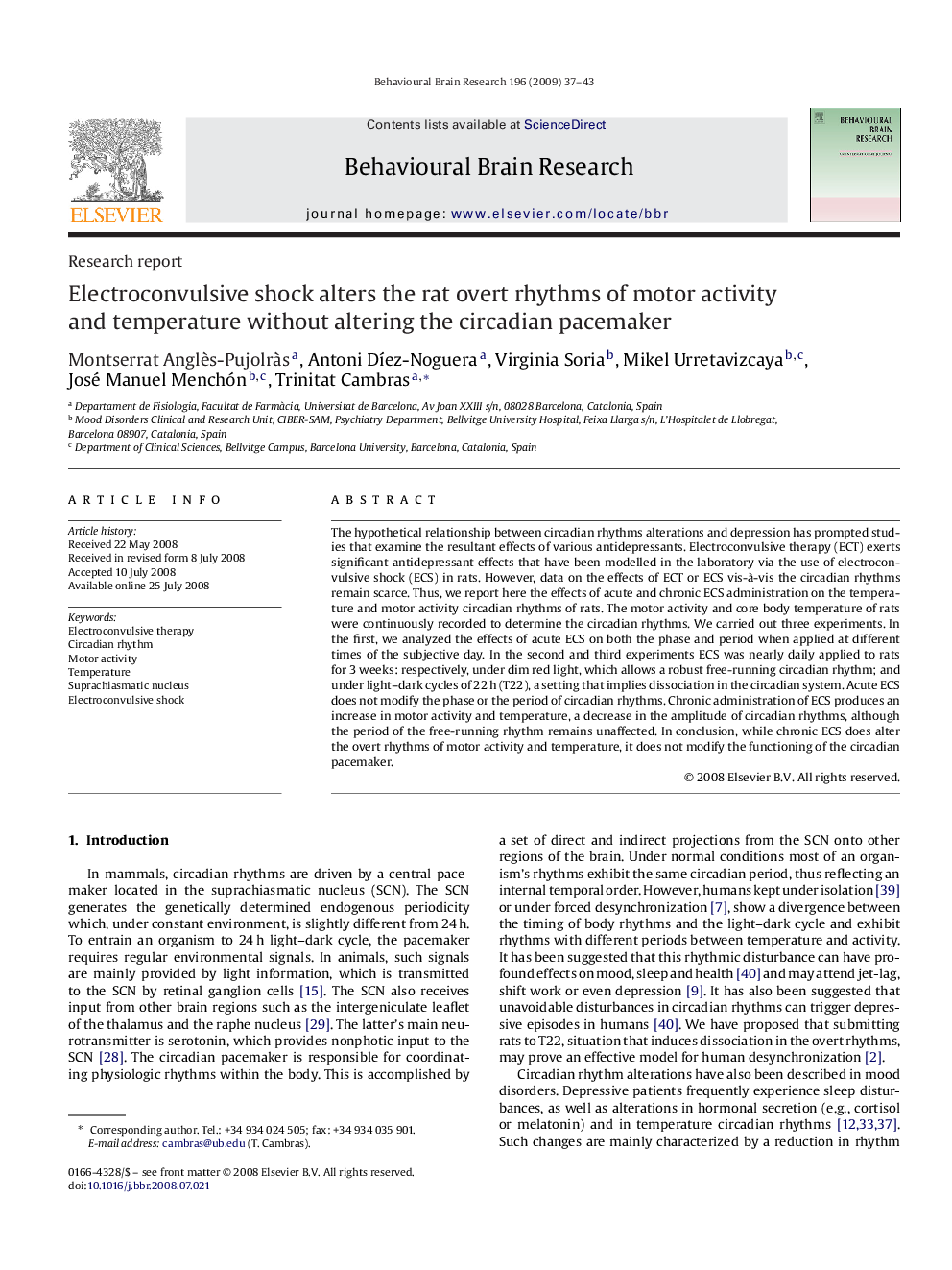| Article ID | Journal | Published Year | Pages | File Type |
|---|---|---|---|---|
| 6260172 | Behavioural Brain Research | 2009 | 7 Pages |
The hypothetical relationship between circadian rhythms alterations and depression has prompted studies that examine the resultant effects of various antidepressants. Electroconvulsive therapy (ECT) exerts significant antidepressant effects that have been modelled in the laboratory via the use of electroconvulsive shock (ECS) in rats. However, data on the effects of ECT or ECS vis-Ã -vis the circadian rhythms remain scarce. Thus, we report here the effects of acute and chronic ECS administration on the temperature and motor activity circadian rhythms of rats. The motor activity and core body temperature of rats were continuously recorded to determine the circadian rhythms. We carried out three experiments. In the first, we analyzed the effects of acute ECS on both the phase and period when applied at different times of the subjective day. In the second and third experiments ECS was nearly daily applied to rats for 3 weeks: respectively, under dim red light, which allows a robust free-running circadian rhythm; and under light-dark cycles of 22Â h (T22), a setting that implies dissociation in the circadian system. Acute ECS does not modify the phase or the period of circadian rhythms. Chronic administration of ECS produces an increase in motor activity and temperature, a decrease in the amplitude of circadian rhythms, although the period of the free-running rhythm remains unaffected. In conclusion, while chronic ECS does alter the overt rhythms of motor activity and temperature, it does not modify the functioning of the circadian pacemaker.
